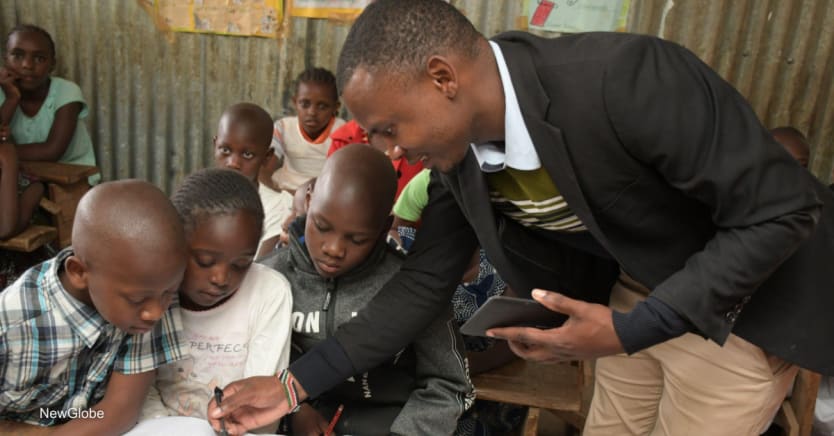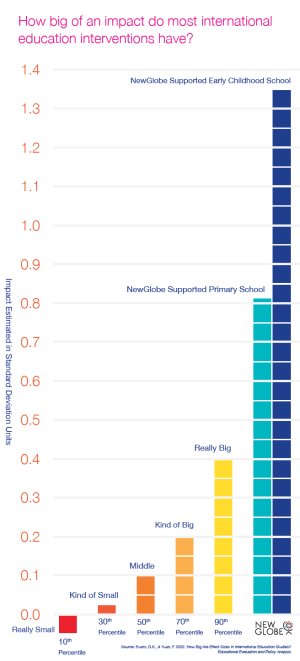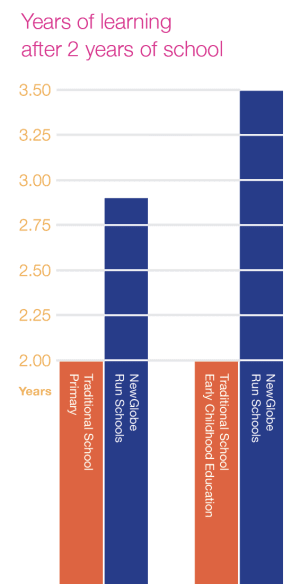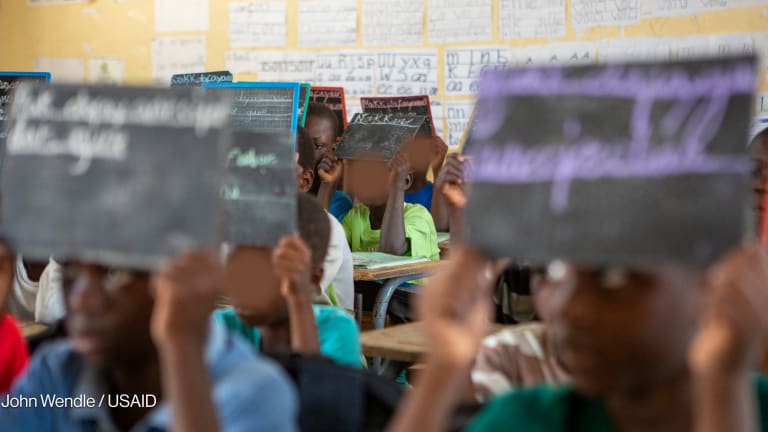
If you were a 10-year-old from a low- or middle-income country, chances are you would not be able to read this sentence.
That’s because 7 out of 10 children in such countries cannot read and comprehend a simple text. They are in what is defined as “learning poverty.”
NewGlobe is a leader in learning and an education expert, working with national and state governments by creating powerful technology-enabled education systems. It supports a million children in classrooms across Africa and South Asia, 95% of them in state schools.
This shocking failure of education outcomes was announced in a new joint study by some of the biggest actors in global education: the World Bank, UNICEF, the U.K. Foreign, Commonwealth and Development Office, the U.S. Agency for International Development, and the Bill & Melinda Gates Foundation.
Dr. Benjamin Piper, director of global education at the Gates Foundation, sums up the current education emergency:
“I want readers of this report to have at least two responses. The first is profound sadness at the magnitude of this crisis. The second is that we have solutions that can work at scale and in government systems.”
The Global Education Evidence Advisory Panel has published a list of cost-effective approaches to improve global learning. It lists structured lesson plans with ongoing teacher monitoring and training as a “good buy.”

Now, a major new study by a group of U.S. academics, led by Nobel Prize-winning economist Professor Michael Kremer, provides more evidence of methods that transform learning outcomes.
Its findings are startlingly clear.
“The test score effects in this study are among the largest observed in the international education literature, particularly for a program that was already operating at scale, exceeding the 99th percentile of treatment effects of large-scale education interventions reviewed by Evans and Yuan (2020),” it states.
It’s worth stressing what that means: A learning program, working at scale in Africa, has been confirmed through a rigorous independent study to deliver learning gains that are much bigger than virtually any studied before.
The new study by Kremer and his co-authors — Guthrie Gray-Lobe, Anthony Keats, Isaac Mbiti and Owen Ozier — is an examination of the benefits of a structured and standardized approach to teaching and learning.
Optimized learning
The study of schools in NewGlobe’s Bridge Kenya program was conducted over two school years and included more than 10,000 students from lower socioeconomic backgrounds, using indicators such as access to electricity and whether homes had dirt or mud floors.
Students in the study were awarded a scholarship through a randomized lottery draw.
It finds primary school students through Grade 8 gain almost an additional year of learning under the NewGlobe integrated methodology, learning in two years what their peers learn in nearly three.
For early childhood development, or ECD, students, the gains are even bigger. Those students supported by NewGlobe gain almost an additional 1 1/2 years, learning in two years what students in other schools learn in 3 1/2 years.

Equitable learning gains
Equity has long been the target of education programming, but rarely achieved. Yet, Kremer and his co-authors show that while all students outperform their peers at every point of the test score distribution, these differences are greatest for students with the lowest learning levels at the start of the study.
This contradicts decades of educational research, from Coleman’s landmark study of academic outcomes to the Organisation for Economic Co-operation and Development’s global study of excellence and equity in education, which both assert that family background matters much more than the differences between the schools students attend.
Alongside equity, the study looked at the impact of outcomes in relation to gender. It found that the learning gains were equally large for girls and boys in NewGlobe-supported schools.
More on transforming global education:
► Watch: The urgency and harsh truths of transforming global education
► Over 100 countries gather to transform education for world's poorest
► ECOSOC president: Solidarity is key to universal education access
Again, the findings contrast with established research that shows girls in sub-Saharan Africa are consistently disadvantaged in learning, with lower literacy rates than boys even when both have the same educational attainment.
These equitable learning gains go hand in hand with a roughly 0.90 standard deviation improvement in higher order thinking skills, such as critical thinking and problem solving at both the ECD and primary levels.
The added value of data
In March 2022, a joint statement from UNICEF, UNESCO, and the World Bank pointed out that many countries are lacking data to measure whether children had even returned to school after the COVID-19 pandemic.
In contrast, the Kremer-led study analyzed a methodology that is data-rich, characterized by an integrated end-to-end system including a digital learning platform, adaptive instructional content, professional development, and 360-degree support.
A focus on school management is combined with the use of cellular networks to ensure each school leader has purpose-built applications for school management and instructional leadership, as well as to digitally publish teachers’ lesson guides and additional supporting materials.
By digitizing materials and information systems, NewGlobe makes core activities within each supported school and classroom visible, and uses that data to support decisions made on everything from the deployment of field support staff to lesson design.
Kremer and his co-authors are clear on the implications:
“This study shows that attending schools delivering highly standardized education has the potential to produce dramatic learning gains at scale, suggesting that policymakers may wish to explore incorporation of standardization, including standardized lesson plans and teacher feedback and monitoring, in their own systems.”
Pioneered in Kenya, this integrated approach to teaching and learning has been embraced by governments in countries including Nigeria, Rwanda, India, and Liberia. The World Bank is noticing the results and supplying additional support, as in the case of the EdoBEST program in Nigeria’s Edo State.
One million students — 95% in public schools — are being taught using the methodology in this groundbreaking study and the figure is increasing year on year.
With global education facing what World Bank Education Director Jaime Saavedra calls the “most serious education crisis in the last 100 years” and UNESCO clear that the SDG 4 target of quality universal education by 2030 will be missed, leaving 300 million children without minimum learning proficiency, change is needed urgently.
Methods proven to deliver transformational learning at scale must be at the heart of our drive to transform education.
You can find more information about the study led by professor Michael Kremer and about NewGlobe here.








